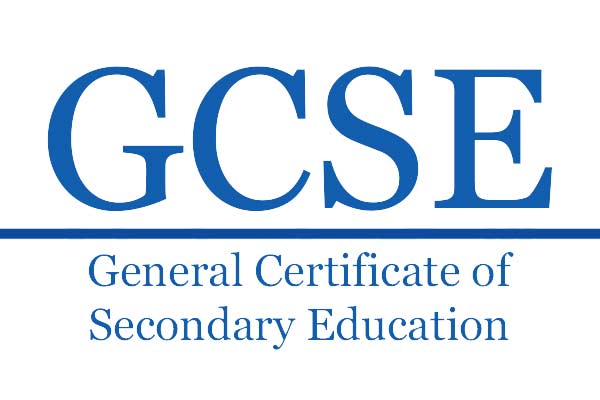What is a GCSE? A Clear Explanation of the UK’s Secondary School Qualification
GCSEs are an essential qualification for students in England, Wales, and Northern Ireland. The results of GCSEs significantly affect a student’s future career. Universities and employers use the GCSEs to assess students’ academic ability and potential.
The grades achieved in GCSEs also determine the courses and qualifications a student can take at the next level of education.
The GCSEs are also crucial for students who wish to pursue vocational courses or apprenticeships. Many vocational courses and internships require students to have achieved a certain level of GCSE qualifications in specific subjects.
GCSEs in Different Countries
GCSEs are not used in Scotland, where the Scottish Qualifications Certificate is used instead. Private schools in Scotland may choose to use GCSEs from England.
Similar qualifications are used in other countries, such as the IGCSE and the General Certificate of Education Ordinary Level (GCE O-Level).
Subjects Offered
GCSEs offer a wide range of subjects for students to choose from. These subjects can be divided into two categories: core subjects and optional subjects.
Core Subjects
Every student must take the following core subjects:
- English language
- English literature
- Mathematics
- Science (either combined science or separate sciences in biology, chemistry, and physics)
In addition, students in Wales must study Welsh until they are 14.
Optional Subjects
Besides the main courses, students have a range of elective subjects to pick from. There are two categories of GCSE subjects. The first includes the mandatory subjects required in secondary school. The second consists of elective subjects that students can opt to study.
Optional subjects include:
- Humanities: history, geography, religious studies, economics, citizenship, psychology, sociology
- Arts: art and design, music, drama, dance, media studies, film studies
- Technical subjects: design and technology, food and nutrition, product design, textiles, electronics, engineering
- Modern foreign languages: French, German, Spanish, and other languages
- Business studies
- Physical education
- Computer science
- Astronomy
- Geology
- Statistics
- Law
Not all schools offer all the non-compulsory subjects, but students should be provided at least one subject from each of these broad groups: Arts, Design and Technology; Humanities; Modern Foreign Languages.
It is important to note that the subjects offered may vary depending on the school and the country. Students should consult their school’s and national curricula to determine available subjects.
Additionally, students may choose to study for international GCSE qualifications, which may have different subject offerings.
GCSE Grading System
Understanding GCSE Grades
GCSE grades are used to assess students’ performance in their GCSE exams. The grading system for GCSEs has changed recently, and it now uses a numerical scale from 1 to 9.
The new grading system was introduced to make it easier for employers and universities to compare grades across subjects. The grading system indicates the level of knowledge and understanding a student has achieved in a particular subject.
🌟 Hey Students! 🚀 Ready for the ultimate experience? Join us on Studentsinside.com's Facebook, YouTube, WhatsApp, and LinkedIn. Click now for tips, fun, and success vibes! 🌈✨ #StudentLife #JoinUs
The new grading system has replaced the old alphabetical grading system, where grades ranged from A* to G. The new grading system is designed to provide a clearer indication of a student’s performance in their GCSE exams. The new grades are as follows:
| Old Grade | New Grade |
|---|---|
| A* | 9 |
| A | 8 |
| B | 7 |
| C | 6 |
| D | 5 |
| E | 4 |
| F | 3 |
| G | 2 |
In simpler terms, getting a grade of 4 is like a bare pass. If you get a grade of 5 or higher, it’s an even better pass. The new way of grading is more challenging, and the best grade you can get is a 9.
GCSE Grade Boundaries
GCSE grade boundaries determine the minimum number of marks required to achieve a particular grade. Exam boards set the grade boundaries and vary from subject to subject.
The grade boundaries are designed to ensure that the same standard is applied to all students, regardless of the difficulty of the exam.
The grade boundaries for each subject are published after the exam results have been released. The grade boundaries are determined by a panel of experts who review the exam papers and decide on the minimum number of marks required for each grade.
Remember that grade boundaries can change yearly based on the exam’s difficulty. So, it’s not possible to forecast future grade boundaries accurately.
Studying for GCSEs
GCSEs are an essential milestone in the UK’s education system, and students typically begin studying for them in Year 10 or 11. Here are some tips on how to approach GCSE coursework and revision.
GCSE Coursework
GCSE coursework is an essential step in getting qualified. It helps students enhance their understanding and skills in a specific topic and improves their overall grades. Coursework can range from writing essays and reports to hands-on projects and experiments.
It’s crucial to stay organized when tackling coursework. Ensure you understand each assignment’s requirements and deadlines and break down the work into manageable chunks. Use a planner or calendar to keep track of your progress, and feel free to ask your teacher for help if you’re struggling.
GCSE Revision Tips
Revision is a crucial part of preparing for GCSE exams. Here are some tips to help you make the most of your study time:
- Start early: Wait to leave revision until the last minute. Begin reviewing your notes and coursework well in advance of the exams.
- Use various study techniques: Everyone learns differently, so experiment with different revision techniques to find what works best for you. Some popular methods include flashcards, mind maps, and practice exams.
- Focus on weaker areas: Identify the topics and skills you find most challenging and prioritize these in your revision.
- Take breaks: Regular breaks are crucial to prevent feeling overwhelmed and maintain concentration. Try to pause every hour, stretch, breathe fresh air, or engage in a fun activity.
- Get plenty of rest: Make sure you’re getting enough sleep in the lead-up to the exams. Being well-rested will help you to concentrate and retain information.
Post-GCSE Options
After completing their GCSEs, students have several options available to them. Here are some of the most common options:
A-Levels
A-levels are a popular choice for university students seeking further education. A-levels are academic qualifications that universities and employers highly value. Students typically study three or four A-Levels over two years in a sixth-form or college setting.
Vocational Courses
Vocational courses are an alternative to A-Levels that offer practical, hands-on training in a specific trade or profession. These courses are designed to prepare students for a particular career and are often provided at further education colleges. Vocational courses such as BTECs, NVQs, or City & Guilds certificates can lead to qualifications.
Apprenticeships
An apprenticeship is a training program that blends hands-on work with classroom study. It’s offered in many fields and can result in certifications like NVQs or BTECs. Apprenticeships are an excellent option for students who want to gain practical experience while earning a wage.
When considering post-GCSE options, it’s crucial to think about your future goals and aspirations. Whether you pursue A-Levels, vocational courses, or an apprenticeship, each option will provide valuable skills and experiences to help you succeed in your chosen career path.
Additional Information
GCSEs are a set of exams taken by students in the United Kingdom. They are usually taken by students aged 15-16 after two years of study. GCSEs were introduced in 1986 to replace the original O-Levels and CSEs.
They are an essential milestone in the UK’s education system and are required for many jobs and further education courses.
There are a few additional pieces of information that are worth noting about GCSEs:
Grading System: GCSEs are now evaluated using a scale that ranges from 9 to 1, where 9 is the top grade achievable. This grading method was established in 2017 as a replacement for the previous A* to G grading system. The updated system is structured to present more of a challenge and aims to distinguish more effectively between students with varying ability levels.
Subjects: At the GCSE level, students have the opportunity to study a variety of subjects such as English, science, maths, history, geography, modern foreign languages, and art and design, among others. Depending on the school and the students’ choices, they learn between 8 and 12 subjects.
Irish Students: In Ireland, students do not take GCSEs. Instead, they take the Junior Certificate and the Leaving Certificate exams. These exams are similar to GCSEs in some ways but have some critical differences.
Support: Students struggling with GCSEs can get help from their teachers, school, and other organizations. Many online resources include revision guides, practice papers, and study tips.
Further Education: GCSEs are essential for students wanting to further their education. Many colleges and universities require students to have a certain number of GCSEs at a specific grade to be accepted onto a course.
References: Employers and universities often ask for references from students who have completed their GCSEs. These references can be provided by teachers, tutors, or other adults who know the student well.








